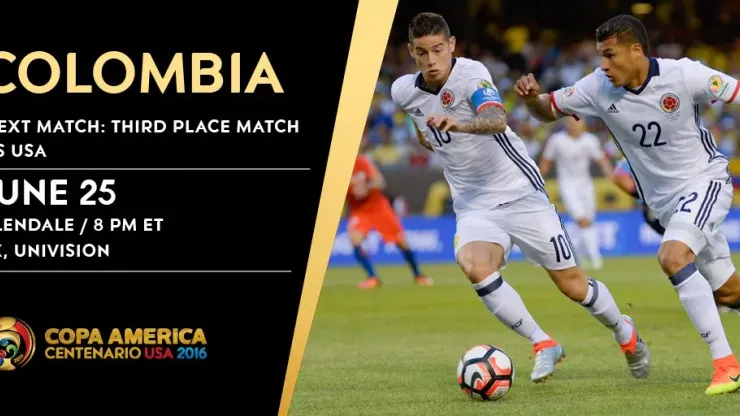It has been hard to determine how the U.S. Soccer Federation is using the Copa America Centenario to grade its men’s team’s progress leading up to the 2018 World Cup. Depending on who you ask and when, the measuring stick was reaching the semifinals, or simply playing the games, or the even more ambiguous total body of work. From a casual fan perspective, it has been harder to select a single game that best serves as a way to measure the progress of the U.S. The Colombia match, depending on your perspective, was either an unmitigated disaster or two small mistakes away from being at worst a draw. Subsequent group stage matches saw the U.S. as the favorite, and a deflated or uninspired Ecuador only really pushed the U.S. in the final 20 minutes of their match. No one seriously took the Argentina match as a true measurement of the U.S.’s progress, just a way to see how the team matched up with the world’s best.
Saturday’s rematch against Colombia, however, is the first match that gives the USMNT a true measuring stick to determine where this team is for the 2018 World Cup. Going back to the first match, most neutral observers saw Colombia as the better team, as they jumped on a U.S. team playing its full compliment of starters. Colombia scored early and then forced a penalty on a handball in the box, before killing off the game in the second half. The U.S. team and its defenders, however, saw the game differently. They saw one defensive mistake by a team playing its first competitive match together in almost a year, then a poor call by a referee. After that, Colombia was able to sit back and defend, thwarting the U.S. attack.
Regardless of your interpretation, this match has some major advantages for the host nation. The Americans now have a starting XI that, while not having played every match together, is in a comfortable rotation. This allows the players to better anticipate teammate’s reactions and cut down on careless mistakes, as well as implement Jurgen Klinsmann tactical plan more seamlessly (stop snickering). In addition, having played Argentina and thinking they should have beaten Colombia, the U.S. comes into the match knowing that it has faced the worst outcome it could and now has a chance at avenging a loss. That alone should inspire its confidence.
On the other side of the pitch, Colombia still has world class talent like James Rodriguez. However, the upside to trying for a win is not quite as there as it is for the U.S. They have already beaten the host nation once, and winning a third-place game doesn’t exactly shower a team in glory. Unlike the U.S., they figured to have a legitimate chance at winning their semifinal game, but the ruthless nature Chile pounced on them and put the match away has to have a psychological effect. In addition, the extended rain delay and traveling a day later than the Yanks means they could have tired legs, again advantaging the U.S. This is a team that has been ranked in the top 5 in the world, but the environment is such that the U.S. should not only be competitive, but can certainly win.
One of the advantages of playing in CONCACAF is that rarely are there win-or-be fired matches. In World Cup qualifying, for every shock loss to a Guatamala there is a Trinidad match waiting to right the ship. Excuses for competing in other tournaments like the World Cup or Gold Cup seem ready made – the groups are impossible, conditions are not right. Saturday night is the perfect chance for the U.S. to make a statement about where they stand in world soccer, and unless something truly bizarre happens, this is the best chance to measure this team and see where it sits in the world. A loss should not be followed by excuses; it should be followed by action.
200+ Channels With Sports & News
- Starting price: $33/mo. for fubo Latino Package
- Watch Premier League, Women’s World Cup, Euro 2024 & Gold Cup
The New Home of MLS
- Price: $14.99/mo. for MLS Season Pass
- Watch every MLS game including playoffs & Leagues Cup
Many Sports & ESPN Originals
- Price: $10.99/mo. (or get ESPN+, Hulu & Disney+ for $14.99/mo.)
- Features Bundesliga, LaLiga, Championship, & FA Cup
2,000+ soccer games per year
- Price: $5.99/mo
- Features Champions League, Serie A, Europa League & Brasileirāo
175 Premier League Games & PL TV
- Starting price: $5.99/mo. for Peacock Premium
- Watch 175 exclusive EPL games per season







